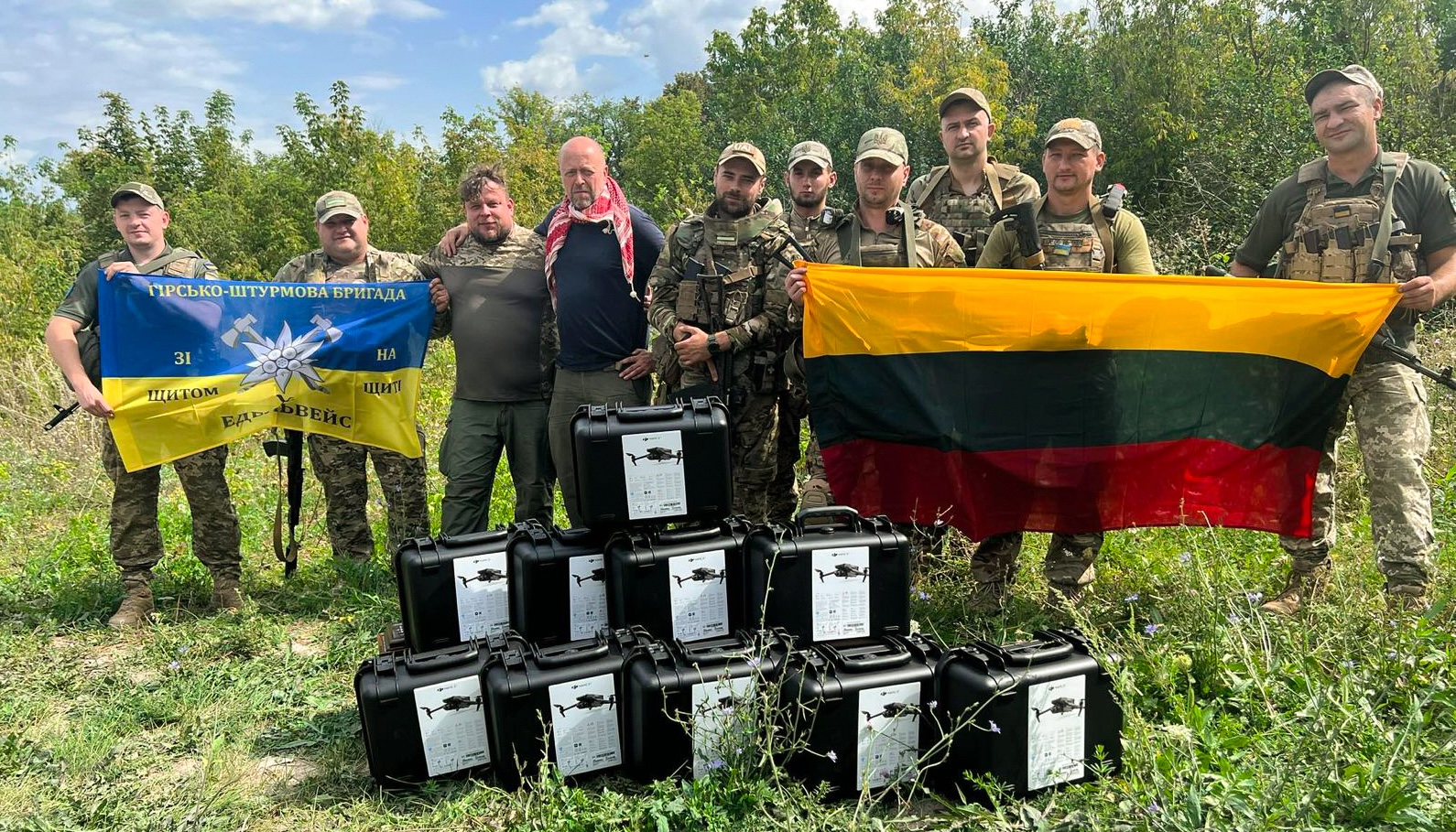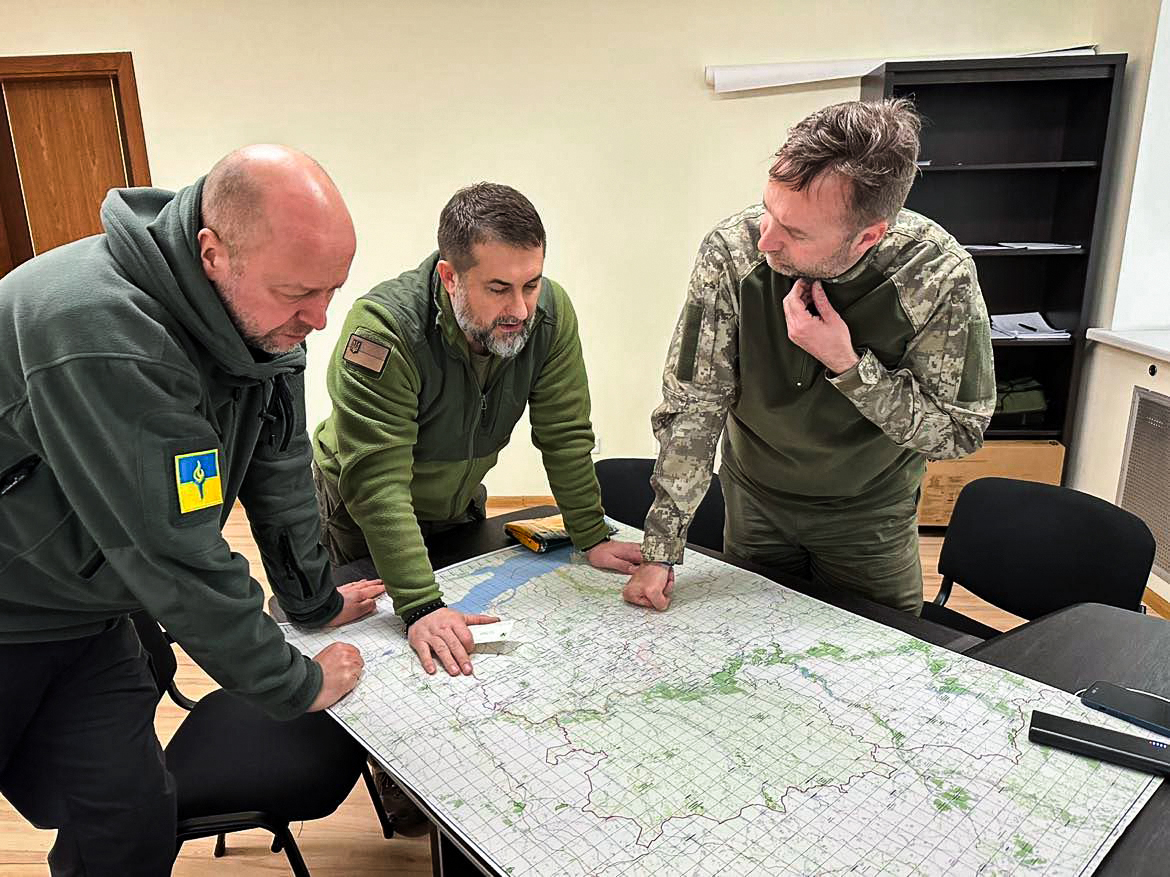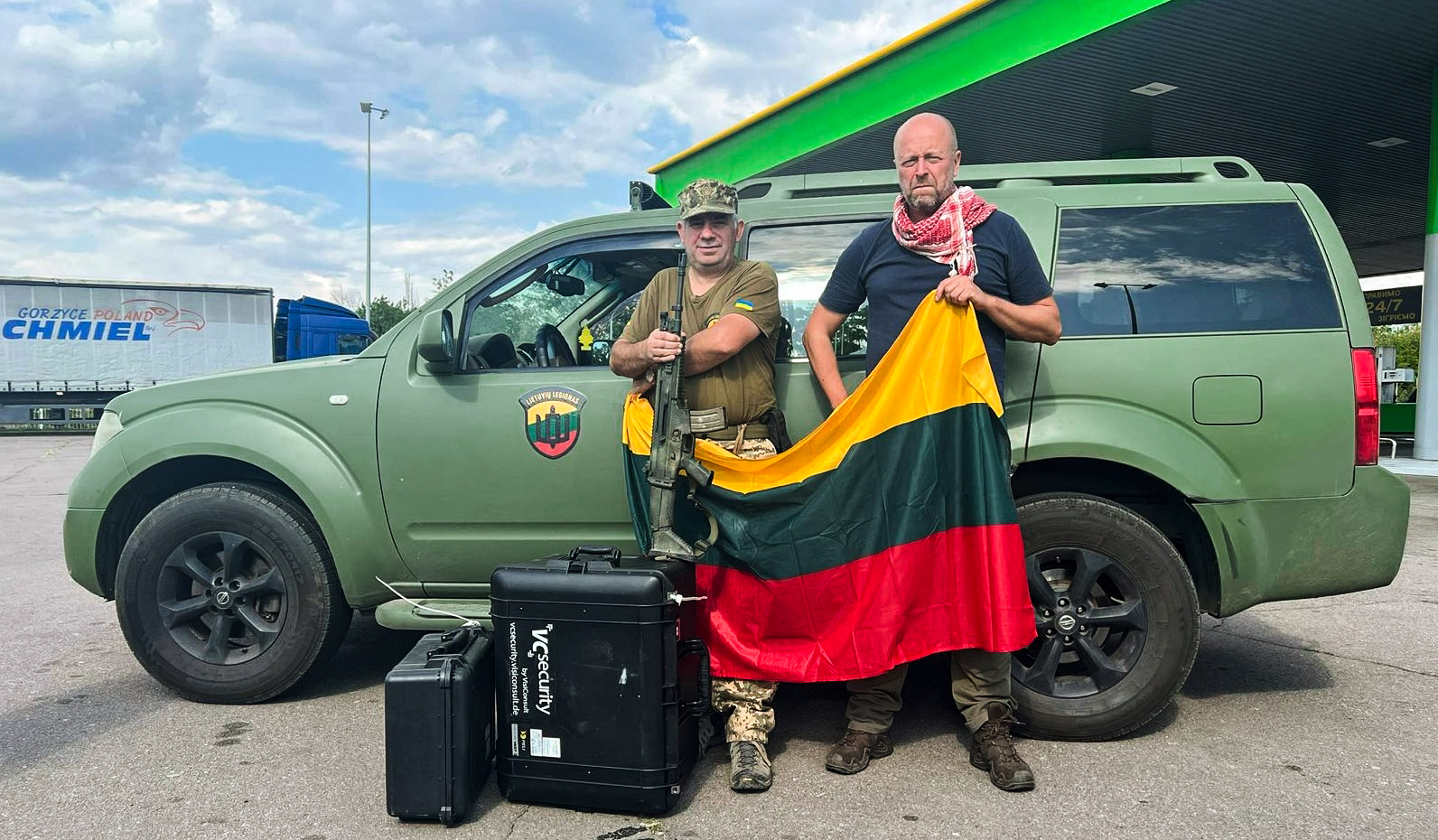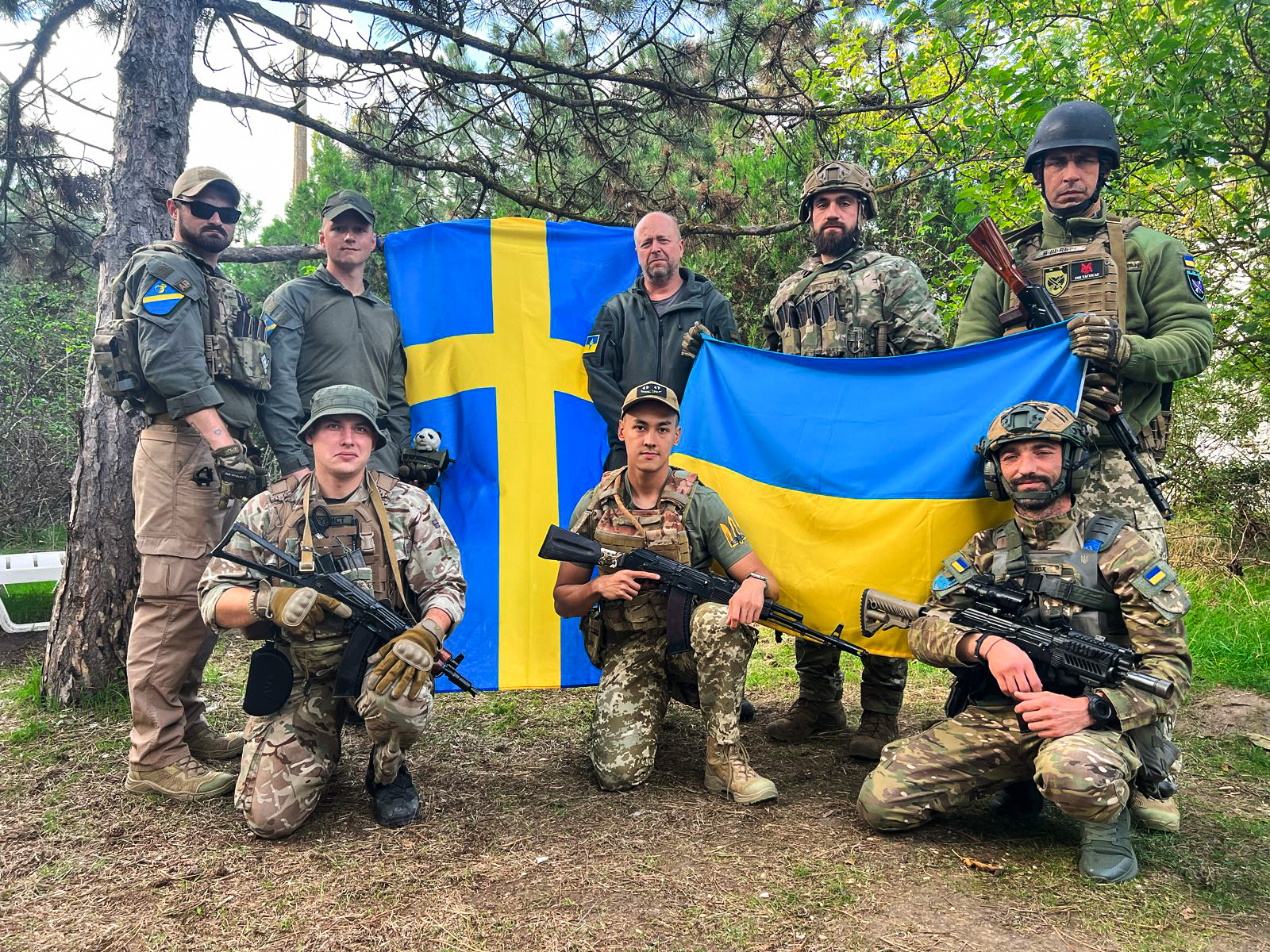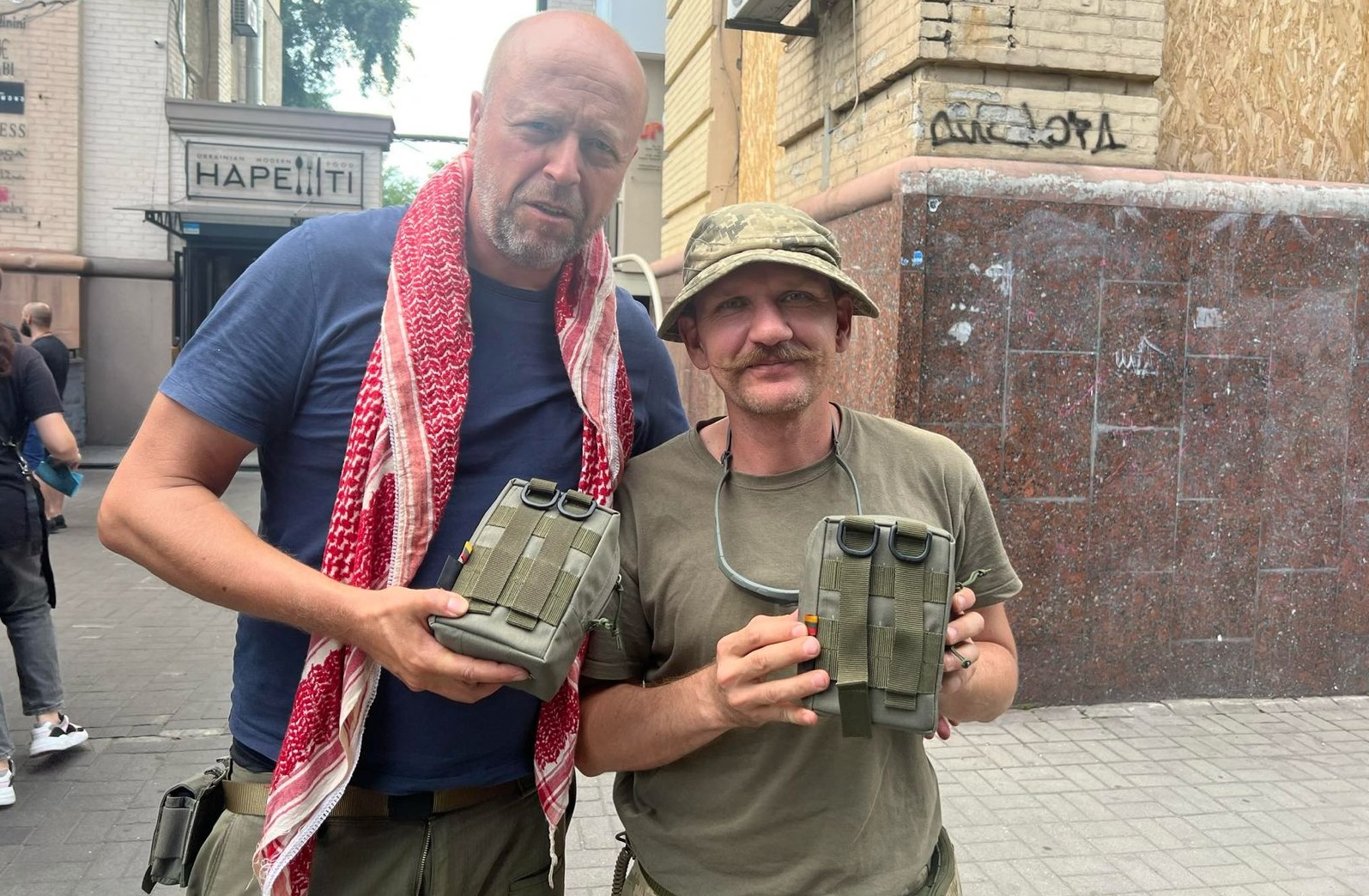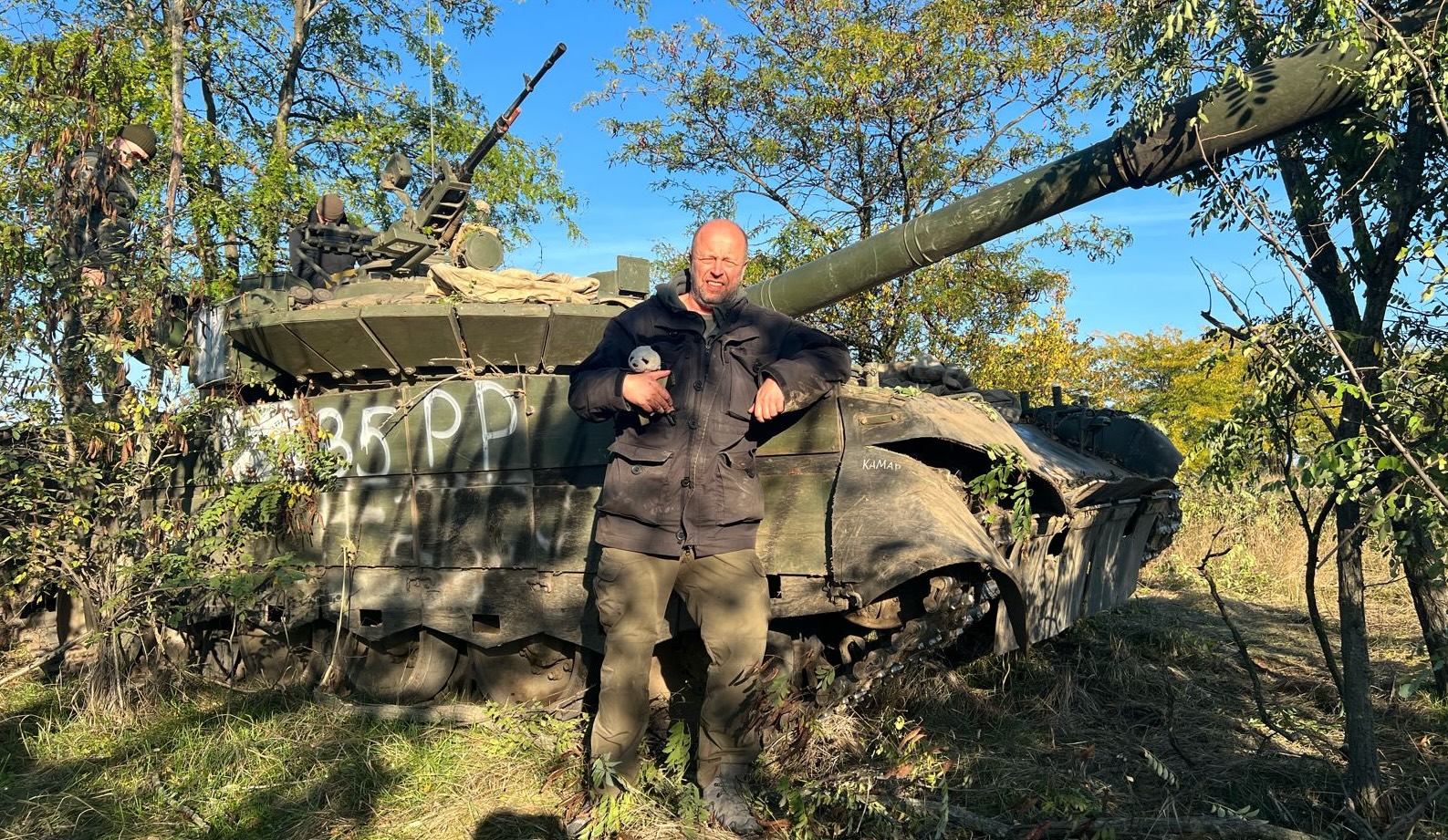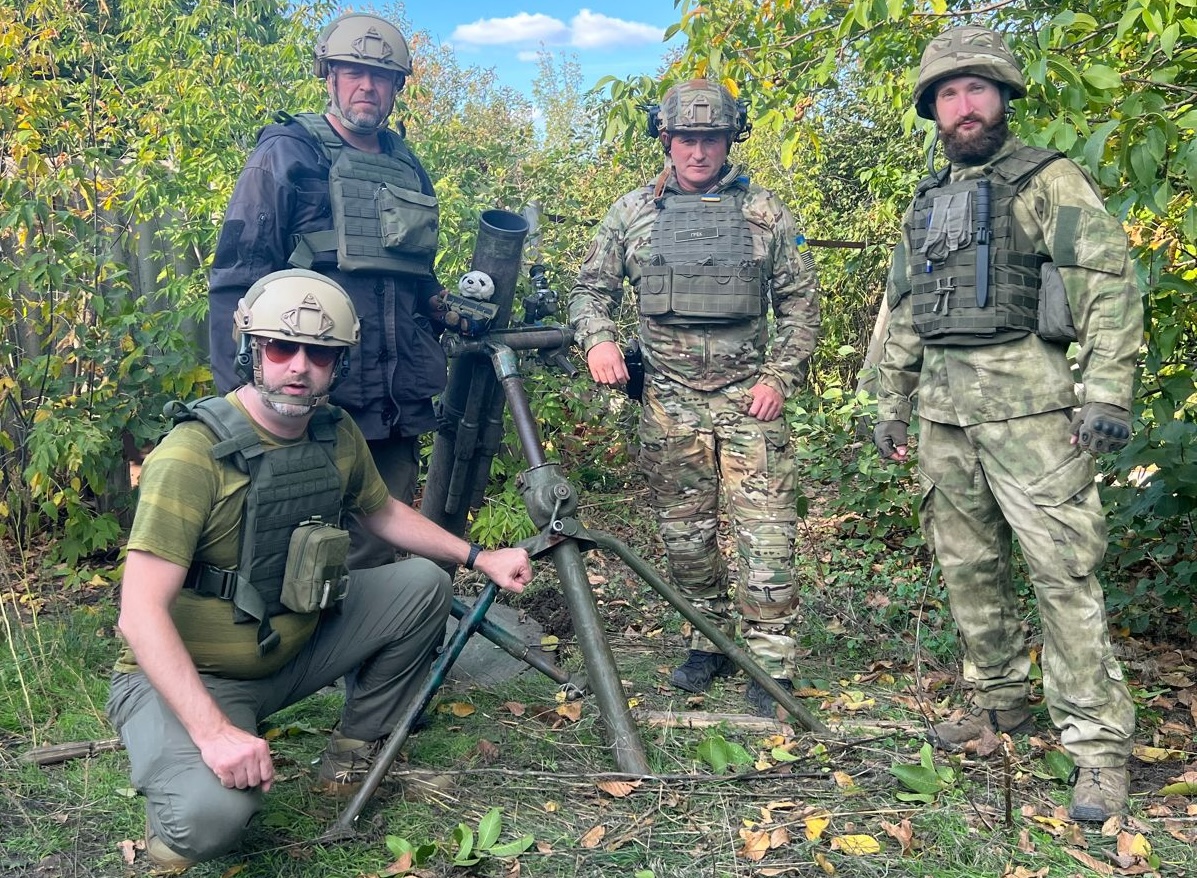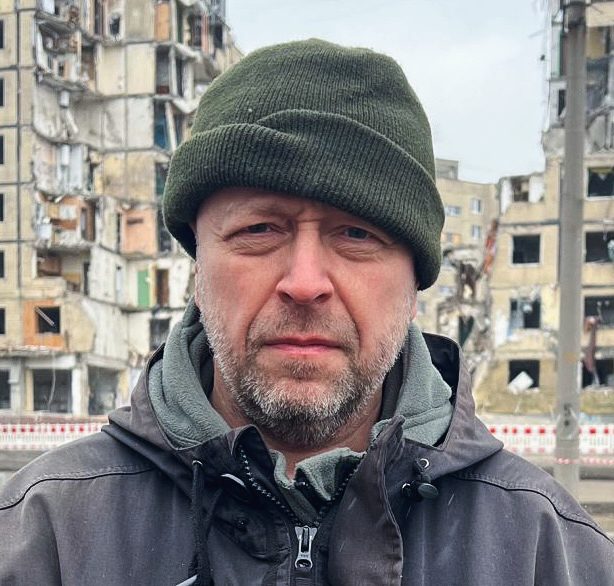
Jonas Ohman
Photography:
Blue/Yellow Foundation
For the second consecutive year, the Yukon Group is proud to contribute to the Radarom campaign —a civil initiative aimed at raising funds to support Ukrainian soldiers defending not just their nation’s freedom, but the freedom of all Europe against Russian aggression.
Although Pulsar devices are designed for civilian use, the company behind the brand remains steadfast in its support for Ukraine. This year, the Yukon Group stands as one of Radarom’s largest supporters, contributing €200,000.
In May we had the opportunity to speak with Jonas Ohman, head of the Blue/Yellow Foundation, about war fatigue, the situation on the Ukrainian front, and the looming threat of war. The foundation, which Jonas leads, is not only a key organizer of the Radarom campaign but also one of Lithuania’s oldest and largest organizations, dedicated to supporting Ukraine in its fight for freedom.
At the end of April, the U.S. House of Representatives approved an aid package for Ukraine, and European countries are also stepping up providing more weapons. Given your frequent visits to the Ukrainian front to deliver aid, do you foresee any positive developments in the near future?
Unfortunately, no, there won’t be any good news anytime soon. There are several reasons for this. First, Russia has escalated its efforts, making the defeat of Ukraine a top priority of Putin’s Russia, and it’s mobilizing all its resources towards this goal. We know the extent of Russia’s military capabilities, and they are fully deployed in Ukraine.
Second, after the initial resistance to mobilization within Russia, soldiers are now being lured to the front with financial incentives. The recruitment pool is vast, extending beyond Russia’s borders to places like Nepal and Cuba. Despite the high human cost for Russia, it shows no signs of stopping.
While the aid is being delivered, it’s often six months behind schedule. Ukraine is currently in a more precarious position than it was in 2022. When I visit units, I see the gaps in personnel and resources. I know how many people there should be, and I see how many are present… Ukraine isn’t prepared for a full-scale offensive, and even defensive efforts are proving challenging.
There’s also no prospect of a diplomatic resolution. There’s no common ground between the two sides. I’m not sure why the West believes this war will end soon. For Russia, this has become a way of life. We mustn’t forget that Russia has allies, like China, who supports them indirectly. We see evidence of this on the front lines, such as projectiles manufactured in China.
You have led Blue/Yellow Foundation for nearly a decade. Can you tell us how the foundation started and how its mission has evolved?
It began quite simply. Although I’m a peaceful Swede living in Lithuania, I served in a Swedish intelligence unit and have since then a certain personal interest in Russian military development. In 2014, when Russia annexed Crimea, I recognized the signs of Russian special forces and realized that Russia was attacking a neighboring country.
When the war in eastern Ukraine broke out, it was clear that Russia was better prepared. They had devised a clever strategy to occupy foreign territories while denying their presence. The world was at a loss, and the Ukrainian military was in poor shape. I was deeply concerned and decided to help.
With the support of friends, acquaintances, and like-minded individuals, we started delivering aid to Ukraine and established the Blue/Yellow Foundation. Even then, Lithuanians understood the gravity of the situation and rallied together, contributing significant resources. I gave up my career in film to earn a living teaching Swedish, which allowed me to divide my time between Lithuania and Ukraine, though it was challenging. My work is not always enjoyable, but it’s fulfilling and crucial.
I often say we’re like a security start-up, and we experienced a huge surge in 2022 after Russia’s large-scale invasion of Ukraine. I was still in Ukraine when the invasion began, and as I was leaving, I received a call from a colleague: “Jonas, we have a million in our account. No, two million. No, three…” Lithuanian businesses reacted swiftly, with several companies making significant donations each day.
Today, the foundation is in a different phase, but we remain just as committed to our mission. We could scale our efforts tenfold, given the demand. Every day, we receive requests from the front lines for tens of thousands of euros in aid.
Jonas Ohman
It was noticeable that Radarom, one of the most recognized Blue/Yellow campaigns, received less engagement from businesses and the public this year. Do you think people are reaching a point of fatigue, or are they simply prioritizing other issues?
In terms of both society and business, Lithuania is doing better than ever. The economic situation has improved consistently over the past twenty years. So, in my view, the resources are there.
However, when I talk to business leaders, they often tell me: “I’m sorry, Jonas, but this year we have other priorities, other projects to develop.” Psychologically, I understand them. We’ve become accustomed to the war; it’s starting to feel normal. But I try to convince them that this mega geopolitical challenge must be addressed fully, or it will come for us next. It seems to me that we’re not taking this threat seriously enough, perhaps believing that the major Western powers will resolve it.
Nevertheless, I enjoy working with businesses because they understand that just because we’re living well now doesn’t mean we’ll be living well next week. That’s why I don’t take the lower contribution to Radarom, compared to last year when we gathered 14 million euros, too hard. Yes, the amount was lower, and the motivation has shifted, but it’s still significant support.
This year, the Radarom Safe Warrior Package included night vision devices. Is night vision still as relevant as it was in the initial years of the large-scale war?
Absolutely. Night vision is crucial. It’s a relatively affordable technology, yet highly effective and has proven its value time and again in Ukrainian units. It allows you to secure the perimeter, see what’s happening at a distance, and detect enemies from far away. Thermal imagining is another thing we are providing. It can be mounted on machine guns, used to spot snipers, and, very importantly, to detect drones. For example, the Shaheed drone emits heat, making it detectable with thermal imaging. Overall, thermal imaging and night vision devices are now indispensable in the field of drone and anti-drone warfare.
Before purchasing any night or thermal vision device, please make sure you adhere to the local legislation and only use it when it is allowed. Our ambassadors come from various countries and travel a lot, which allows them to test different devices. We do not encourage or support the illegal use of our devices in any events. If you wish to learn more about export and sales restriction policy, please visit the following link: Export and Sales Restriction Policy.
